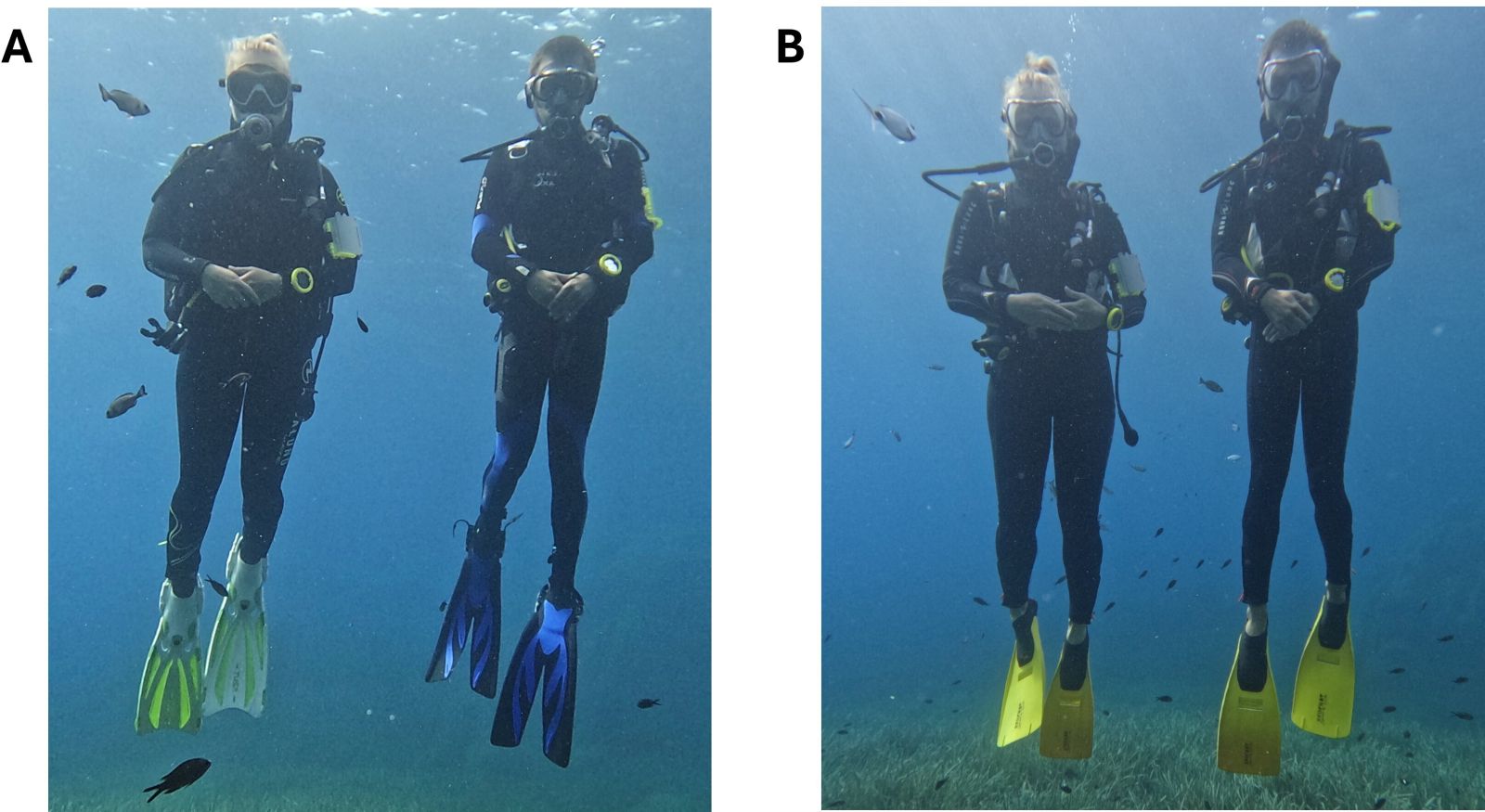The surprising ability of fish to recognize humans individually 🐟
Published by Cédric,
Article author: Cédric DEPOND
Source: Biology Letters
Other Languages: FR, DE, ES, PT
Article author: Cédric DEPOND
Source: Biology Letters
Other Languages: FR, DE, ES, PT
Follow us on Google News (click on ☆)
Previous studies had already shown that captive fish could distinguish human faces in images. However, this new study is the first to be conducted on wild fish in their natural habitat.

The two divers wearing (A) different diving gear (experiment 1) and (B) identical diving gear (experiment 2).
A team from the Max Planck Institute of Animal Behavior (MPI-AB) in Germany collaborated with experienced divers to study the behavior of two fish species: the saddled seabream (Oblada melanura) and the black seabream (Spondyliosoma cantharus).
"Volunteer" and cooperative fish
The researchers first habituated the fish to follow a specific diver by associating her with a food reward. Over several days, the diver fed the fish at the end of her route, creating a positive association. The fish quickly learned to recognize the diver and follow her.
Then, a second diver joined the experiment. The fish were then faced with a choice: follow the familiar diver or the newcomer. The results were clear: after initially distributing themselves randomly between the two divers and learning from their experience (only one of the divers had food), the fish began to predominantly follow the diver they had learned to associate with food.
However, while the fish easily distinguished the divers when they wore different gear, it was more difficult for them when the two divers wore identical gear. This suggests that fish use visual cues, such as the color and shape of the gear, to recognize humans.
The implications of this discovery
This study reveals that fish possess more complex cognitive abilities than previously thought. They are capable of learning, remembering, and distinguishing humans, which demonstrates a form of intelligence. This discovery challenges our anthropocentric view of the animal world and invites us to reconsider our relationship with other species.
This study also opens new perspectives for research on animal behavior. It shows that it is possible to study the cognitive abilities of fish in their natural environment, using innovative and respectful methods.
To go further: Vision and learning in fish, much more than simple reflexes
Contrary to popular belief, most fish do not see the world in black and white. They often have highly developed color vision, comparable to that of humans. This ability allows them to distinguish different colors and shades, which is essential for navigating their environment, hunting prey, and communicating with their peers.
Fish vision is adapted to their lifestyle and habitat. Fish that live in clear, shallow waters have vision similar to that of terrestrial animals, with good perception of details and colors. Fish that live in darker or murkier waters have vision more sensitive to light, allowing them to detect movement and shapes even in low-light conditions.
Learning is an essential ability for fish, enabling them to adapt to their constantly changing environment. As demonstrated by the aforementioned study, fish are capable of learning to recognize individuals, associate stimuli with rewards or dangers, and modify their behavior accordingly. Studies have shown that fish can learn to solve problems, recognize shapes and patterns, and even remember the location of food or obstacles.